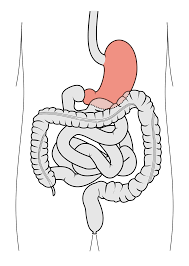Attention-Deficit Hyperactivity Disorder
- Aug 24, 2022
- 2 min read
Attention-Deficit/Hyperactivity Disorder, commonly known as ADHD, affects over 61 million children and adults in just the United States.

ADHD is most commonly diagnosed in children due to things like behavioral issues , but can also greatly affect adults. Symptoms of this condition can be broken down into patterns of the following three behaviors:
Hyperactivity
In adults, hyperactivity usually manifests as talking too much or too fast, or being overly restless. Children might have an excessive amount of energy, running around excessively as if driven by a motor. Whatever the case, a person may seem to need constant movement, or excessively fidget, talk, and struggle to sit still.
Inattentiveness
A person with ADHD may have trouble remaining focused and on task, and staying organized. This is commonly mistaken as a lack of comprehension or insolence, though this is not the case. Inattentiveness makes a person absentminded; easily distracted by stimuli in their environment. They often make careless mistakes because they have difficulty sticking to detailed instructions and may leave projects unfinished.
Impulsivity
Someone with ADHD may act without self-control or not put thought into their decisions, perhaps having a desire for immediate gratification. Impulsivity could cause them to interrupt other people, be clumsy, and make important decisions without considering long-term consequences.
These symptoms can arise as early as the ages of 4 to 6, though for a teen or adult to be diagnosed, their symptoms must have been present before the age of 12.
Although these behaviors can be seen in many people, for those diagnosed with ADHD, the symptoms present can be more severe, interfering with their performance academically and even in work or social situations. For someone to receive a diagnosis, their symptoms must be chronic and have impaired their life in some way. It’s also important to note that other physical and mental conditions, such as anxiety, depression, and sleep disorders, can cause symptoms similar to those of ADHD.
As for risk factors, a definite cause for ADHD has not yet been pinpointed. However, researchers have found that genetics can play a large role in how the condition is passed down in families. Additionally, environmental factors (such as nutrition, injuries to the brain, and social conditions) could possibly impact someone’s risk of developing ADHD, though they are largely still being researched.



Comments